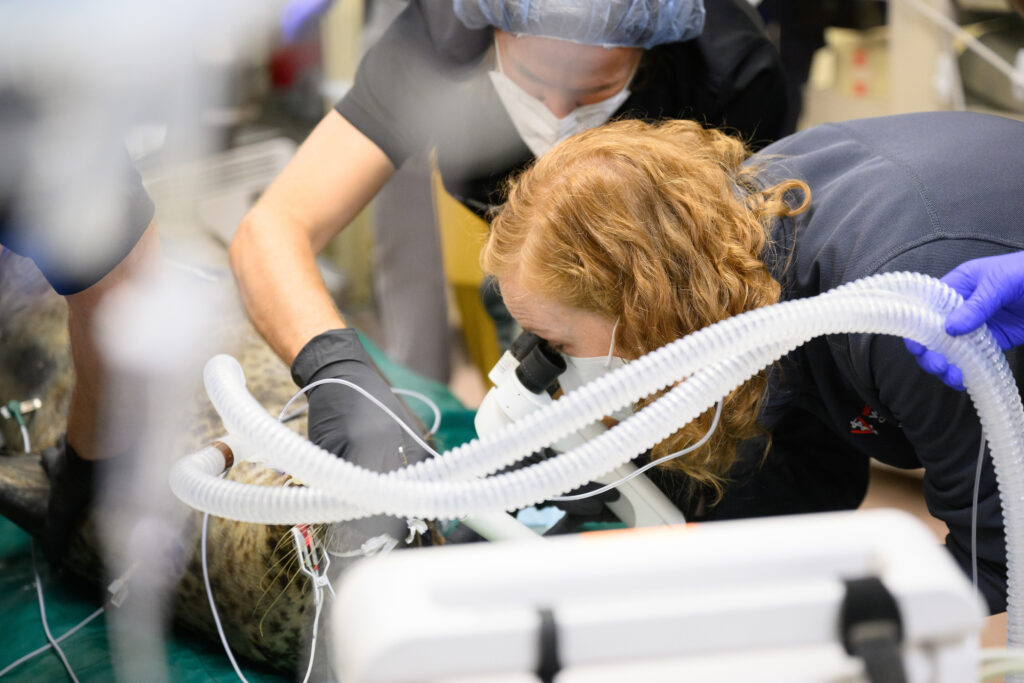Ophthalmology
A veterinary ophthalmologist is a board-certified specialist in the treatment of eye disorders in animals. To become eligible for board certification, a veterinarian must devote at least three additional years to specialized training in an approved residency program. The veterinarian’s knowledge and skill in their specialty have been recognized and evaluated by a specialty organization sanctioned by the American Veterinary Medical Association (AVMA). For ophthalmologists, that organization is the American College of Veterinary Ophthalmologists (ACVO).
Equine Ophthalmology
The Equine Ophthalmology Program at NC State University is the only program in the world devoted to the research and treatment of equine ocular disease. Our clinical service accepts patients from the entire East Coast. Our clinical and research laboratory has ongoing research projects, with several presentations expected each year at national meetings on ocular or equine health.
The ophthalmology service at the Veterinary Hospital is an established center and considered an international leader in the field of equine ophthalmology.
Learn about our ophthalmology clinical service

Research
The Equine Ophthalmology Program focuses its research in two areas: determining the cause of equine recurrent uveitis and investigating novel methods to treat horses and deliver medications to the eye over a long period of time.
Current Areas of Clinical Investigation
- Understanding risk factors and causes of equine recurrent uveitis, the most common cause of blindness in horses
- Developing enhanced treatment for ocular cancer, such as squamous cell carcinoma
- Evaluation of novel medication-delivery systems for the equine eye
- Development of improved surgical techniques for corneal transplantation in the treatment of severe corneal abscesses and other severe corneal diseases
- Understanding corneal healing and the differences in equine corneal diseases compared to other species
- Understanding the development of effective therapies for chronic non-healing corneal ulcers
- Improvement in techniques and surgery for cataract removal in horses including development of the first equine intraocular lens
Current Areas of Basic Science Research
- Understanding the underlying pathology and development of equine recurrent uveitis
- Development of novel medication-delivery systems for the equine eye, which is the largest eye of any terrestrial animal
- Understanding tear film and corneal growth factors, cytokines, and other proteins to develop better methods to manage severe corneal infections
- Evaluation of medication penetration into the equine eye for the treatment of severe infections and cancer
Potential Practical Outcomes
- Greater understanding of the disease progression and new methods to treat equine recurrent uveitis
- Development of practical and effective methods to treat corneal ulcers, the second most common cause of blindness in horses
- Development of methods of treatment of chronic ocular disease that ensures that medication reaches the eye